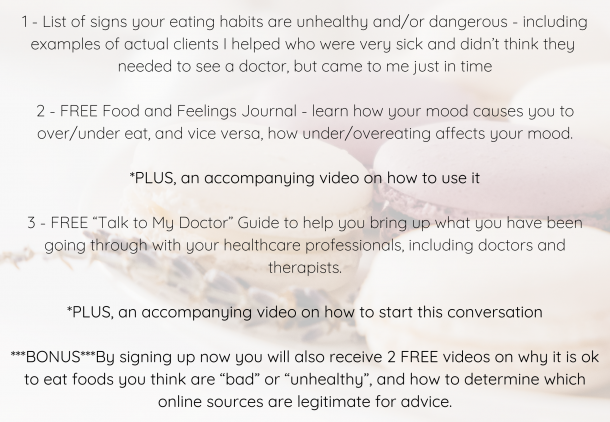I am so glad you asked!
Most people don’t know; and honestly that is why I am now going by “Not Your Average Nutritionist” as my new business name, despite being an actual Registered Dietitian.
*2018 update – YouTube video on this topic (see bottom of this post)
As of 2018: Anyone, even with no training, can call themselves a “nutritionist.” Literally.
You can buy a certification online with no education, you can just call yourself a nutritionist without buying anything, or you can have a degree in nutrition and dietetics.
A Registered Dietitian (or RD, or RDN) is also a “nutritionist,” but there is a key difference – specific educational requirements! The same way a medical doctor or nurse goes through specific training, degree programs, and supervised residency/internships, dietitians have requirements.
A RD has at minimum completed:
-A Bachelor’s of Science in Nutrition and Dietetics (or a Master’s Degree in the same, if their B.S. was in a different field). This is heavy in biology and chemistry courses that get more specific to the molecules that make up foods/vitamins/minerals, and how the body processes them. Classes in counseling and teaching are also important aspects of the nutrition curriculum.
-A dietetic internship (D.I.) of at least 1200 hours in a variety of settings that RDs work in, under supervision. This is similar to a medical residency, and has strict requirements for what must be experienced, and competencies met and signed-off by supervising RDs. Dietetic Internships are also highly competitive, with less than 50% acceptance rate (at least that was the case in 2011). The process of being accepted requires not only good grades, but multiple essays, recommendation letters, work experience, interviews, and fees to apply to most sites.
-Upon completion of the D.I., the person, will study for, and take a national registration exam of 140+ questions covering areas of clinical nutrition, calculations, food service, counseling theory, and metabolism. A passing score makes the test-taker a RD!
-But wait – there’s more! Every 5 years, there is a minimum of 75 hours of continuing education that must be documented and submitted to the Commission on Dietetic Registration (CDR), including at least 1 hour of Ethics training, to maintain the credential. Most RDs, like myself tend to go well over our required 75 hours, because there is constantly more to learn!
What else is special about RDs?
-Registered Dietitians are the only profession that can legally call themselves “nutrition experts,” and give “Medical Nutrition Therapy” (MNT). MNT is diets/diet advice for specific medical concerns that is beyond generic nutrition advice like “eat more vegetables.” Some disease states are very nutrition dependant for life and health. Medical Doctors are legally allowed to give nutrition advice, and sign off on dietary components in clinical settings, but most MDs have had only class of nutrition education in their whole college experience! (Some, of course, understand the importance and go on to do more).
(pssst… get a free macronutrient handout HERE for general healthy eating)
RDs can have many different kinds of jobs.
-Many work in hospitals or clinical settings where they are dealing with acute illness, and providing MNT.
-Some (like myself) go on to have additional training in counseling skills and psychology, to deal with clients on a behavioral and mental health basis.
-Other’s get additional certifications in specialty areas like diabetes (certified diabetes educator), or renal (kidney) nutrition.
-Some work in food service, creating menus, ordering food in bulk, running a kitchen staff (doing staffing), working with food allergies and calorie counts.
-Research /or/ Research and Development have many RDs working to find best practices or develop new food products.
-Education. Whether teaching nutrition in colleges, or teaching classes or individuals in public health, RDs have a lot of info to cover that can help increase quality of life and prevent disease.
-Work in food technology and agriculture to create more nutritious food or solve hunger problems.
…..and many more potential areas! The field is growing, and so are options for dietitians!
I believe the median salary is low, because most people still do not understand what RDs can do for individuals, and the world. My hope is that more people will understand the importance of RDs, and the difference between “Registered Dietitian” and “Nutritionist” so that the jobs will go to the educated.
“All RDs are nutritionists, but not all nutritionists are RDs.” – Academy of Nutrition and Dietetics.


